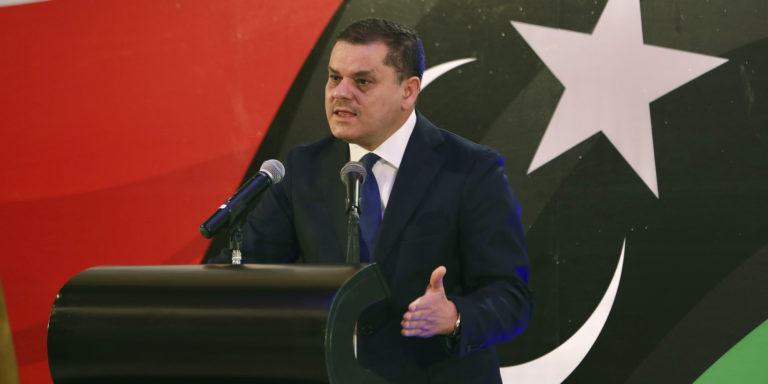INTELBRIEF
February 26, 2021
IntelBrief: Libya’s Latest Push for Peace After Ten Years of Conflict

Bottom Line Up Front
- UN-brokered peace talks in Geneva have led to the formation of an interim government in Libya, known as the Government of National Unity (GNU).
- The interim government must navigate complex political divisions while also tackling issues related to Libya’s banking sector and energy industry.
- Despite the world watching closely, Libya remains a country where external actors with powerful connections have operated with impunity.
- Factional competition within the government will continue to plague Libya, even as recent progress might seem encouraging.
UN-brokered peace talks in Geneva have led to a sort of breakthrough, however tenuous, in the formation of an interim government in Libya, known as the Government of National Unity (GNU). The Libyan Political Dialogue Forum (LPDF), which includes 74 members and was facilitated by the United Nations Mission in Libya (UNSMIL), was tasked with appointing an interim government consisting of three members of a Presidential Council, headed by Mohammad Younes Menfi, and interim prime minister Abdul Hamid Mohammed Dbeibah. The selection of Dbeibah, seen as a dealmaker and more pragmatic than dogmatic, has assuaged some of the more powerful actors involved in this complex process. Elections are scheduled to be held in December 2021.
The process should be considered in its infancy and major substantive issues, including leadership of the armed forces and accountability for war crimes committed throughout the course of the decade-long civil war, have been shelved for the meantime. The interim government – intended to replace the two rival administrations – must navigate extremely complex political divisions, including with the Tobruk-based House of Representatives and the High Council of State. Even if those challenges can be overcome, which is far from inevitable, there are issues related to Libya’s banking sector and energy industry. A barely functioning state bureaucracy is unable to provide basic services, while a liquidity crisis forces Libyans into the illicit economy, which is dominated by militias and armed criminal gangs. Powerful tribal interests, economic powerbrokers, and various warlord and militia leaders all have a stake in the future of Libya’s government. Yet, for some of these same players, they stand to profit more from continued conflict than peace. A stable and quasi-functioning government will impinge upon lucrative rackets run by Libyan criminal organizations that maintain transnational connections. Just last week, a raid by Libyan security forces on a prison operated by human traffickers in the southeastern Libyan city of Kufra helped to free more than 150 African migrants.
An October 2020 deal that brokered a ceasefire also stipulated that foreign powers were to withdraw from Libya by January 2021, a condition which has gone unmet. Despite the world watching Libya so closely at various points, it remains a country where external actors with powerful connections have operated with relative impunity. Russia and Turkey have dispatched mercenaries to back their respective sides. According to the United Nations, there are still upwards of 20,000 foreign fighters and mercenaries in Libya. Egypt has extended an olive branch to the interim Libyan government in Tripoli, perhaps suggesting a recalculation of Cairo’s strategy after the military failures of Libyan warlord Khalifa Haftar who leads the western-based Libyan National Army (LNA). In addition to receiving support from Egypt, Haftar is also backed by Russia and the United Arab Emirates. For his part, Haftar seems to support the interim government; his forces still control large sections of central and eastern Libya, ensuring his influence in any future government. Elite powerbrokers will maneuver to secure access to resources, thus allowing them to maintain their patronage networks.
There are concerns that the current interim government is less representative of Libyan factions and more closely tied to Turkish interests, making long term prospects for stability less likely. There have been fits and starts of progress before — including the 2015 Libyan Political Agreement — which have ultimately fizzled out while the country descended back into violence. Over the weekend, Libya’s Interior Minister Fathi Bashaga barely survived an assassination attempt when his motorcade came under fire. Factional competition within the government will continue to plague Libya, even as recent progress might seem encouraging. But if that fighting takes place in the political, and not the military sphere, it will be an important step toward ending the bloodshed that has become so routinized in Libya over the past ten years.